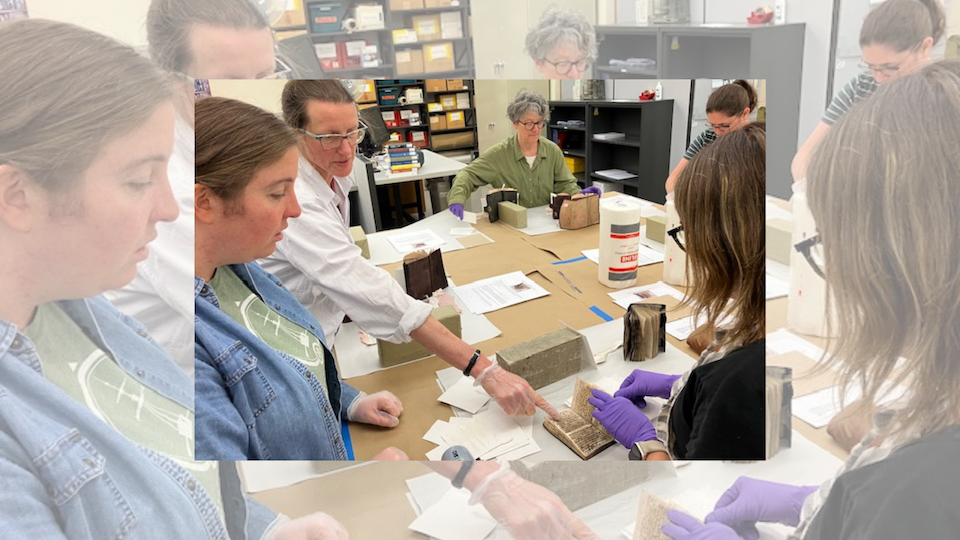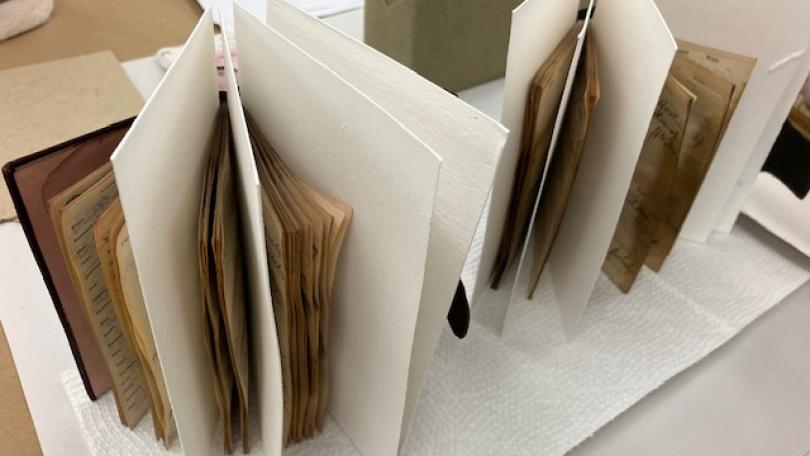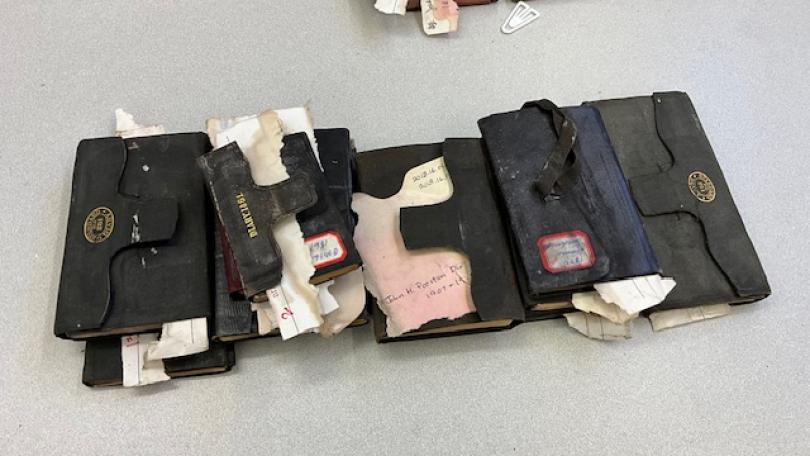
Repairing flood-impacted books requires specialist care and collaboration. Discover how.
In May and June, the Dartmouth Libraries’ Preservation Unit hosted a pair of public workshops, co-sponsored by the New England Conservation Association (NECA), and the Vermont Arts & Culture Disaster and Resilience Network (VACDaRN), in the Libraries’ Conservation Lab.
These workshops followed on from the Preservation team’s emergency response to Vermont’s July 2023 severe flooding. It was then that preservation staff assisted in salvaging 32 diaries and other material owned by the Strafford Historical Society at the Justin Morrill Homestead. The floodwaters had encroached upon and created significant damage to the items in storage.
The salvaged diaries and other material were brought to Dartmouth Libraries for frozen storage in the Conservation Lab. Freezing is an important conservation technique. If wet items can’t be aired and dried out immediately, then freezing them is the only option to stop potential mold growth, which can happen in 72 hours from exposure. It took most of the year to stabilize them and decide on the best approach to treat them. The treatment process is vital in saving these items.

